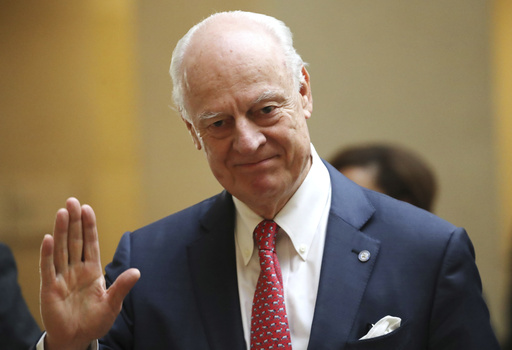
The United Nations Security Council has decided to prolong the mandate of the peacekeeping mission in Western Sahara for an additional year, but Algeria opted not to participate in the vote due to the resolution’s omission of a clause regarding human rights monitoring in the contested territory.
The voting results were 12 members supporting the extension, while Russia and Mozambique chose to abstain. Algeria, which backs the Polisario Front—a key player in the ongoing conflict—did not cast a vote at all.
The roots of this dispute trace back to 1975 when Morocco claimed Western Sahara, previously a Spanish colony, setting off hostilities with the Polisario Front, which seeks independence for the region with support from Algeria. This area is thought to possess significant offshore oil reserves and mineral wealth, and its size is comparable to that of the United Kingdom.
A cease-fire was established in 1991 through U.N. mediation, which also led to the creation of a peacekeeping force meant to supervise the truce and prepare for a referendum on the region’s status. However, disagreements over voter eligibility have stalled this process, with Morocco currently favoring a plan for autonomy rather than complete independence for Western Sahara.
In 2020, the situation intensified when the Polisario Front resumed military actions, effectively ending a 29-year cease-fire, leading to increased tensions in the area.
Algeria’s U.N. Ambassador, Amar Bendjama, attempted to incorporate two amendments into the U.S.-proposed resolution but was unsuccessful. He criticized the United States for not including provisions that would allow the U.N. mission, known as MINURSO, to oversee human rights in Western Sahara.
U.S. Deputy Ambassador Robert Wood asserted that the resolution reaffirmed the Security Council’s backing for Staffan de Mistura, the special envoy to Western Sahara, emphasizing the need to advance a long-lasting and dignified settlement for the region.
Wood highlighted the urgency of achieving a political resolution for Western Sahara, citing a recent statement by U.S. Secretary of State Antony Blinken, who described Morocco’s autonomy proposal as “serious, credible, and realistic” and possibly a viable solution to meet the aspirations of the Western Sahara population.
Earlier this month, U.N. envoy de Mistura suggested the idea of splitting Western Sahara as a possible means of addressing the interests of both parties and allowing residents to choose their governance model. However, he reported to the council that there has been no indication from either Morocco or the Polisario Front of a willingness to pursue this suggestion further.
